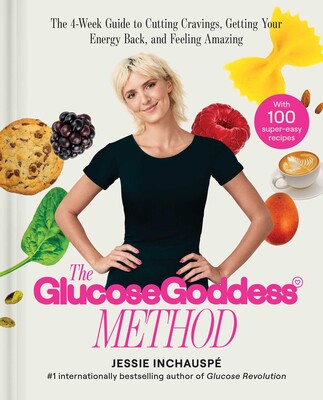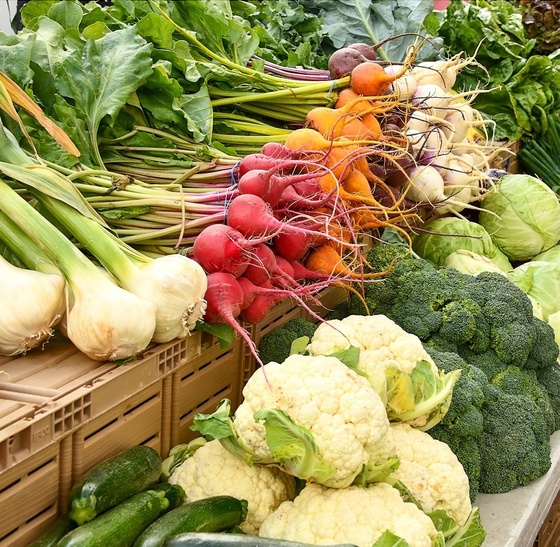June is a month for transition, and it also happens to be Brain Health Awareness Month. As a society, we are collectively learning that supporting our brain function is a critical piece to strengthening our overall health and wellbeing. Mental Health, healing from a brain injury, preventing neuro-degenerative disease like Alzheimer’s and Parkinson’s now has our full attention.
Alexa Rosenthal: Nutrition Matters for Brain Health!
“Personally, after two brain surgeries in 2018 brain health has become a priority for me. As I study, research and continue to learn about brain health I have come to the realization that all the parts that make us human beings are connected.”
Alexa Rosenthal
As a culture we tend to want to address one piece of our health in order to reach a health or fitness goal. Whether this is losing weight or running a marathon, we want a single task that helps us achieve our objective. That may be to drink more water, increase our protein intake, find a new supplement, commit to daily exercise, manage our stress and of course improve our sleep. These remain pillars of health that need to be included in any healthy lifestyle plan.
Our bodies are miraculous and if you pause for a moment to really think about the human body you realize how complex, intricate and individualized each of us are. That is probably why finding your consistent lifestyle plan can feel challenging at times.
If I could break this down in the simplest terms, I would say to think of yourself in your entirety. Every choice you make impacts all of you.
Here is a food analogy:
When you eat a vegetable like broccoli you may know it is part of the cruciferous family and high in Vitamins C and K (and this can be enough of a reminder and inspiration for you to eat some for dinner tonight).
Even more importantly, broccoli reduces inflammation, improves blood sugar levels, boosts immunity and promotes heart health. Powerful reasons to eat broccoli, right? However, not all bodies can enjoy broccoli for various reasons and the quest is finding a cruciferous plant that works for your body. When we choose a food item, we want to think about how this will impact your energy, digestion, satiety, mood and cognition. All of you!
If we were all in a room together right now discussing this topic we would agree that there is and will continue to be a confusing amount of information about how to eat.
When eating for a healthy brain, body and overall wellbeing think first and foremost of eating whole foods. Limiting, if not completely removing processed foods is what all contemporary diets including Vegan, Mediterranean, Vegetarian, Pescatarian, Keto, Intermittent Fasting, Dash and others have in common. In my professional opinion this is what is most important in any plan you choose for yourself. Choose your meals carefully. (For some help with this see Alexa’s book recommendations below)
As you continue to transition into summer and pull out the sun hat, shorts and new workout shoes think of yourself in your entirety. Create balance and consistency (as best you can-this is not about perfection) when you eat, move, sleep, drink, play and most importantly love.
As always, Island Fitness is here to help and guide you in your journey.
Island Fitness Offers Wellness Coaching both In-Person and Virtually!
One of the questions we get asked the most at Island Fitness is what food should I be eating?
We have FOUR Wellness Coaches, Alexa, Kat, Diane and Carol, available to help you create a personal exercise and nutrition plan!
What Alexa is reading for Brain Health:
There are so many self-help “health” books out there! I rarely get excited enough to want to read the whole book, but I recently came across two books that I believe to be helpful and important reads for both women and men (young and old).
French biochemist, Jessie Inchauspe’s books, Glucose Revolution and Glucose Goddess Method are worth your time. She dials into the importance of understanding the role of blood sugar.

This is for everyone, not just individuals concerned with diabetes and insulin resistance. Yes, this is for those wanting to lose weight, and more importantly for those wanting to reclaim their energy and experience less anxiety and depression!
Our blood sugar impacts every aspect of our wellbeing. Learning how to maintain the steady flow throughout the day not only positively impacts our brain, but also our mood, hormones, digestion, sleep and more!
Jessie gives us super easy hacks for maintaining steady glucose which supports energy, emotions and more. One of her go-to methods, which has been around for a very long time, (she reminds us how helpful this can be) is having a tablespoon of vinegar 10 minutes before a meal.
Research shows that drinking vinegar before a meal can curb the glucose spike of what you eat afterwards by up to 30%.
Yes, raw apple cider vinegar is powerful, but it can be almost any vinegar, and you don’t have to drink it straight! Dilute a tablespoon in 8 ounces of water. Balsamic or flavored vinegars would be my last recommendation as they contain more sugar. There are so many cool vinegars out there these days – explore vinegars like you would wines or another favorite beverage type of your choice.
At home, Michael and I enjoy salad with a simple salad dressing made of equal parts raw apple cider vinegar and olive oil, with salt and garlic to taste, a great way to get both fiber and that glucose spike preventing vinegar.
Another method Jessie shares is starting each meal with fiber (aka vegetables). When we eat fiber at the beginning of our meal, it has time to get to our digestive tracts and create a protective mesh in our upper intestine. “This mesh then reduces the absorption of any glucose molecules coming down during the rest of the meal” Jessie explains.
Look for more from Alexa in next week’s newsletter!
Members contact Alexa to schedule your complimentary 45-minute session with one of our four wellness coaches.


